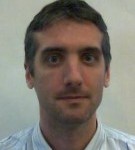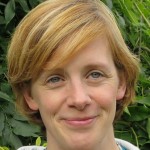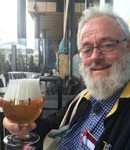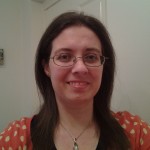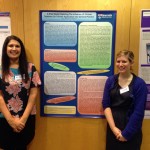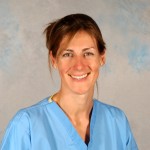BACKGROUND
Patient safety is a key priority in the NHS and crucial for this is effective multidisciplinary teamworking. Thus, preparing students for collaborative teamwork in the clinical environment is essential. Interprofessional education, when two or more professions learn with, from and about each other to improve collaboration and quality of care, is seen as an effective mechanism to prepare professionals for teamwork in the clinical environment. This approach has become integrated into the MBBS degree programme at Newcastle University through strong collaborative links with the Pharmacy degree programme at the University of Sunderland.
We aim to further our students’ interprofessional education (IPE) experience with the development and delivery of a day-long conference for Stage 2 MBBS and Pharmacy degree students (~420 student in total). The conference will take the form of series of stimulating and innovative interprofessional workshops focused on key NHS priority areas, designed to strengthen learning around patient safety, antibiotic prescribing, surviving sepsis and safe interprofessional working practice. The conference format will be realised through the production of conference packs, stands from affiliated organisations and charities, lanyards, pre-reading material, an art exhibition produced on the conference theme by the students, lunch and refreshments. We will use a range of cutting edge teaching techniques to deliver the interprofessional sessions, such as use of high fidelity mannequins to simulate acute medical emergencies and team based learning exercises. A summary of the plan of work for the day is below.
PLAN OF WORK
This conference will run on the 11th March 2016 at Newcastle University Medical School.
The theme for the conference is effective management of infection and patient safety. We will use a range of educational tools to deliver 4 strands of work for the day:
1) Keynote lectures
We will start the day with a series of short keynote presentations from senior NHS staff highlighting the importance of effective interprofessional working for the management of infection and patient safety.
2) Choosing the right antibiotic seminar
This was our flagship IPE seminar developed for Stage 2 students and piloted and evaluated successfully in 2014. Students work in interdisciplinary teams to solve clinical problems around the selection and administration of antibiotics for meningitis and urinary tract infections.
3) Surviving sepsis
We have developed a team based learning exercise using SimMan (a high-fidelity virtual patient simulator), exploring the management of acute sepsis. The use of this virtual patient allows students to apply their shared knowledge to a simulated real-life emergency scenario and see the effects their treatment has on the patient in real time.
4) Patient safety incident analysis
This exercise collates information about patient safety incidents, which students will analyse in interprofessional teams to determine the human and other factors contributing to the incidents.
METHODOLOGY
I have set up an IPE Conference steering group that has met three times so far since July. The steering group consists of key Newcastle and Sunderland staff involved in organising the conference. Sunderland colleagues include Louise Statham, Alan Green and Lesley Scott. Newcastle colleagues include Elsa Randles, Jo Matthan and Andy Teodorczuk. We have identified a number of streams of work, and sub-groups are meeting outside of the main meetings to further these streams.
All sessions are interprofessional with medical and pharmacy students working through the tasks and scenarios together. Each session will be facilitated by one doctor and one pharmacist, except for the SimMan sepsis session which will additionally have a nurse facilitator. Students start and end the day together in the RB Green lecture theatre for the keynote lectures, and between are rotated around the three sessions of work (choosing the right antibiotic, surviving sepsis and patient safety incident analysis). We have 19 rooms running at once throughout the morning and afternoon sessions. Below is a summary of progress of some of the streams of work.
1) Recruit academic staff
We require 46 members of staff (half doctors, half pharmacists) to facilitate the teaching on the day (more if some tutors only do half a day). Elsa Randles is organising recruitment of the medical tutors and Louise Statham is coordinating recruitment of the pharmacy tutors.
2) Develop SimMan sepsis case + patient safety incident analysis
Jo Matthan is taking the lead in organising the SimMan sepsis case. She is working with Louise Statham and Alan Green on the materials. We piloted the session earlier this year with MBBS and Pharmacy students. This session will consist of a simulation of an elderly man who presents acutely unwell to the A and E department. Students need to work in interprofessional groups to identify whether the man is presenting with sepsis. They will need to work with national guidelines and the British National Formulary to decide on the most appropriate treatment and then prescribe this accurately.
Elsa Randles is taking the lead on organising the patient safety incident analysis session. Students will analyse the records of the elderly man who ends up in A and E with sepsis to identify a range of errors (human and other) which result in the man’s sepsis being missed at an earlier stage. This session will highlight the importance of good interprofessional working in the reduction of errors.
The bulk of the materials for these cases has been produced. Between now and January we are looking to collate all materials required (instructions, hospital admissions chart, prescription forms etc) ready for insertion into our workbooks for the day. Briefing notes and materials for the tutors are being produced alongside these.
3) Recruit keynote speakers + outside organisations to run stands
We have identified and approached pharmacy and medic keynote speakers who work within the NHS to speak on the importance of good interprofessional working practice and how this can impact on the outcome for a patient. We are awaiting confirmation.
We have approached a number of organisations about running stands on the day, to add to the verisimilitude of the conference approach. So far the Medical Protection Society (MPS) and the British Pharmacological Society (who co-manage the Prescribing Safety Assessment that Stage 5 MBBS students must take) have agreed to participate in the day and we are waiting to hear back from other organisations.
4) Art competition
All conferences materials will be contained in cloth bags and we are running a competition to designs the logo for the conference which will be printed on all conference bags. All participating Stage 2 students (Newcastle and Sunderland) have been emailed and invited to submit designs. The winning design will be decided by a panel of students and tutors from Newcastle and Sunderland universities and will be printed on all bags. In addition the winning entrant will get £50 and two runners up will get £25, courtesy of MPS. A selection of the best remaining artwork will be displayed in the exhibition area of the conference.
5) Administrative organisation
As part of the conference we are providing lunch and refreshments for students and rotating them around 20 teaching rooms. All students will be provided with lanyards detailing their timetable and marking them as either a medic or pharmacist so they can easily self-organise into interprofessional groups. Students will be provided with a conference pack containing the workbooks and materials needed for each session. Organisation of all the above is a large administrative task.
I worked with central timetabling earlier in the year and with the Faculty Office to book rooms for teaching and rooms for staff and students to have their lunch in. I’m now working with the (much appreciated) support of the Medical Student Office to organise things like the timetables, lunch, conference bag collation and collection.
I’ve had meetings with MedSoc and put them in contact with the student society for Pharmacy at Sunderland to organise a social after event. The desire for more social contact outside the IPE teaching sessions was something which has been fed back after pervious IPE work.
6) Evaluation
A mixed methods approach to evaluation will be undertaken. We are producing a set of qualitative and quantitative questions to evaluate the event. This includes evaluation of the teaching sessions as well as an evaluation of the added benefit of the conference approach (as opposed to running a series of teaching sessions). We will run this evaluation on the day (forms will be present in the conference packs) and we will employ a Newcastle Work Experience student intern in March to assist in inputting and analysing the data. We aim to hold a post event focus group to explore the themes within the free text.
Dr Clare Guilding, Project Lead, School of Medical Education
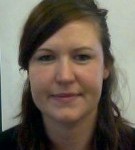 I attended the 2nd FMS Learning and Teaching Forum on 2nd December 2015. As someone who hasn’t found their “pedagogic niche” it was very interesting to see what kind of research is happening in the faculty. It was quite nice to see these work in progress studies rather than the finished product as it made for some interesting discussion following each talk. I will not summarise all of the talks as I know a number of these are summarised in a previous ERDP newsletter but will talk through my highlights and the themes I felt ran through the session. One of the talks that I thoroughly enjoyed was that of the “Context café”, this is a very interesting idea that I would like to incorporate into my teaching.
I attended the 2nd FMS Learning and Teaching Forum on 2nd December 2015. As someone who hasn’t found their “pedagogic niche” it was very interesting to see what kind of research is happening in the faculty. It was quite nice to see these work in progress studies rather than the finished product as it made for some interesting discussion following each talk. I will not summarise all of the talks as I know a number of these are summarised in a previous ERDP newsletter but will talk through my highlights and the themes I felt ran through the session. One of the talks that I thoroughly enjoyed was that of the “Context café”, this is a very interesting idea that I would like to incorporate into my teaching.
